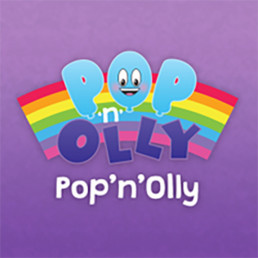
Written by Pop 'n' Olly
Pop‘n’Olly is the UK’s leading LGBT+ educational resource provider for primary aged children, parents, carers and teachers. The company's resources and books are being used in primary schools across the UK as well as globally in over 70 countries. www.popnolly.com
When I ask children to guess when same-sex marriage was introduced they come up with all sorts of wildly wrong suggestions… ‘The 1950s?’ they say and I indicate it’s a bit more recent. ‘The 1960s? The 1980s, 1990s?’ they throw out. When I tell them it was 2013 they are usually staggered – something that they’ve known all of their lives is so recent!
We live in a country that has not only legalised same-sex marriage but also has the Equality Act (2010) which protects a wide range of people of all ages, including people with different sexual orientations and trans/non-binary people. This is something to be celebrated with children. It’s not just in their school that staff encourage them to see other people as different but equal, but also in the whole of the UK – and that’s enshrined in law!
Prejudice relates to beliefs, thoughts and feelings about someone or a group of people. Prejudice is usually negative. Discrimination relates to actions against someone because of their identity or characteristics.
Discrimination is an action against someone because of their identity or characteristics. It grows out of prejudice, which is a (usually negative) belief about someone. As teachers, our job isn’t to police children’s thoughts, but instead, to help them see the wonderful variety of people who exist and help them not be afraid of these differences.
Using visuals, drop-in references, and explicit teaching we can ensure that children’s view of the world is one where there are millions of ways to be a human and some of these ways look different from them.
Celebrating differences isn’t just about helping all children feel good about themselves but it affects how we see others. When faced with differences we can help children to see those differences as strengths. Whilst we have many things in common, humans have evolved to be widely different across the globe and our experiences living different lives, both in the UK and elsewhere means we have different skills and knowledge. Sharing these differences allows us to learn from each other and to see the world through others’ eyes – sparking new thoughts, new ideas and new perspectives.
Here are some ideas you might try out with your children:
- Actively teach children about The Equality Act (2010). Use our posters, lesson plans and resources to ensure that children understand that treating people fairly and equally is part of the culture and law of the UK.
- Help children understand that people are not treated equally around the world and that change happens because of action. Examples of this might be the Stonewall Riots in the US, and the legalisation of same-sex relationships in the UK – that came about because of the work of Leo Abse MP.
- Instead of ‘Heads Down Thumbs Up’ at the end of the day, get the children to play a game where they partner up and have to find two things the same and one thing different from each other which they then share with others. Children could then try and find others who match (or are different) – or even make up their own rules for the game.
- Learn a ‘Sign of the Day/Week’ to help children understand that communication is different for different people.
- Play Paralympic sports in P.E. such as seated volleyball or goalball with the same competitive enthusiasm as other school sports (these were so popular with my Y6s!)
- Use CBBC’s ‘My Life’ series to help children learn more about other children’s lives, such as ‘When Mum Becomes Dad’ and ‘Mae’s Guide to Autism’.
- Ensure that your classroom displays represent a wide variety of people of all shapes, colours, abilities, genders, etc.
- Discuss scenarios with children about people who are experiencing discrimination. Talk through ideas on how this person may feel and what children could do if they witnessed this on the playground for example.
It is very hard to change the world, but we can make our schools somewhere where everyone is welcome and make our little bit of it more welcoming. We can help all children feel good about themselves by celebrating differences and we can help them to see that difference is not something to be afraid of, but a strength.
You can download our Discrimination, Prejudice and Equality Medium Term Plan, together with all the lesson plans, videos and resources that you need to work with your UKS2 class on this.

